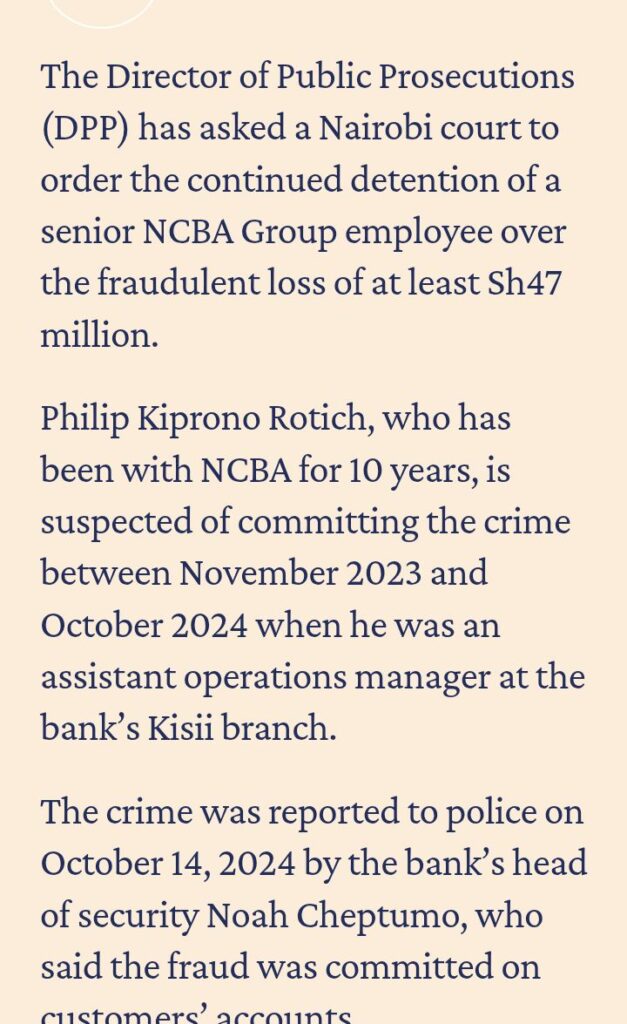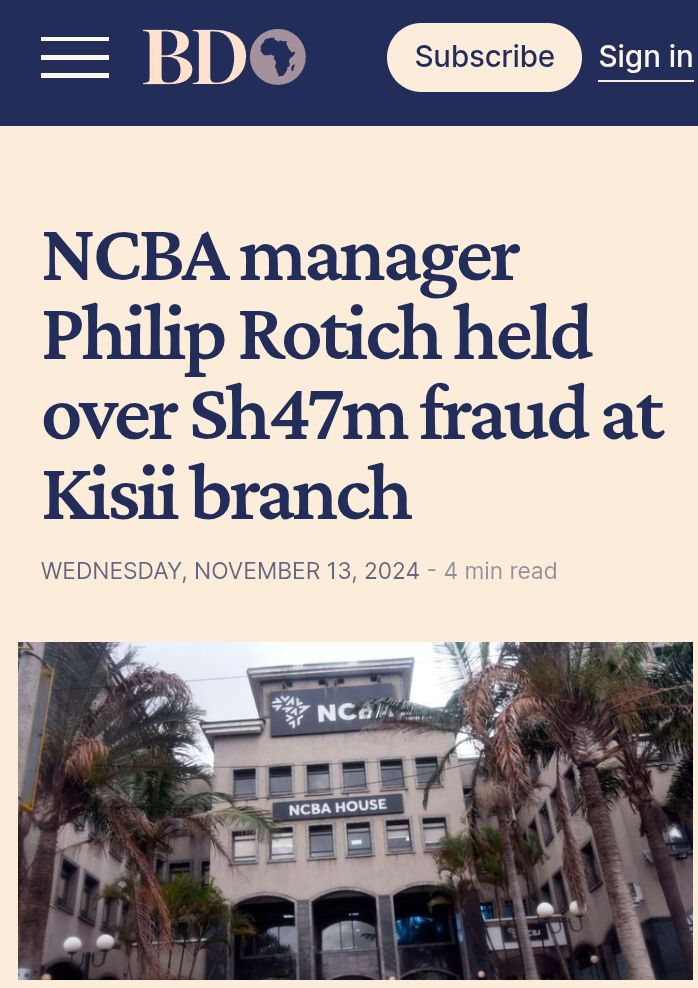NCBA Bank is currently embroiled in a damaging scandal that has brought its reputation into question.
Philip Kiprono Rotich, an assistant operations manager at the bank’s Kisii branch, stands accused of embezzling a staggering KSh 47 million from customer accounts.
The alleged fraudulent activities took place over a period stretching from November 2023 to October 2024.
According to reports by Business Daily Africa, Rotich targeted accounts belonging to high-profile clients, including a Catholic diocese and a bishop, raising alarm over the bank’s ability to safeguard customer funds.
The scandal emerged as it became evident that Rotich had transferred the stolen money into accounts operated by his close associates.

Such a breach of trust and professionalism within a financial institution that prides itself on being a leading bank in Kenya is deeply troubling.
It also indicates major failings in NCBA’s internal monitoring systems.
For a fraud of this magnitude to occur undetected for nearly a year, questions must be raised about the bank’s operational efficiency and security protocols.

This is not the first time NCBA has faced controversies, but this scandal has further damaged its public image.
Customers are beginning to question whether their money is truly safe in the bank’s hands.
Financial institutions operate on trust, and once that trust is eroded, it is incredibly difficult to restore.
The fact that such a senior official could allegedly manipulate the system so easily points to systemic failures in NCBA’s governance.

Kenya Insights, a platform that frequently exposes corruption within major institutions, has also highlighted the weaknesses in NCBA’s approach to handling sensitive financial matters.
The platform noted that while Rotich’s case has come to light, it is possible that other fraudulent activities might have occurred without detection.
This casts doubt on the effectiveness of the bank’s fraud detection mechanisms, further tarnishing its reputation.
NCBA’s inability to detect such a major theft raises concerns not just about internal processes but also about accountability.
How many other senior officials might be exploiting loopholes in the system?
How many customers have unknowingly suffered due to these lapses?
Without addressing these questions transparently, NCBA risks alienating its customer base.
The bank must act decisively to repair its tarnished image.
First, it needs to recover the stolen funds and ensure that all those involved face legal consequences. Second, it must implement robust measures to strengthen internal controls and prevent similar incidents in the future.
Third, it must offer reassurances to its clients, possibly through independent audits and public disclosures about how it plans to prevent future fraud.
The damage to NCBA’s reputation is undeniable, and rebuilding trust will not be easy.
The scandal serves as a stark reminder to financial institutions across Kenya about the importance of prioritizing transparency, security, and accountability.
If NCBA fails to act swiftly and decisively, it risks not only losing customers but also facing increased scrutiny from regulatory bodies and the public.












Leave feedback about this